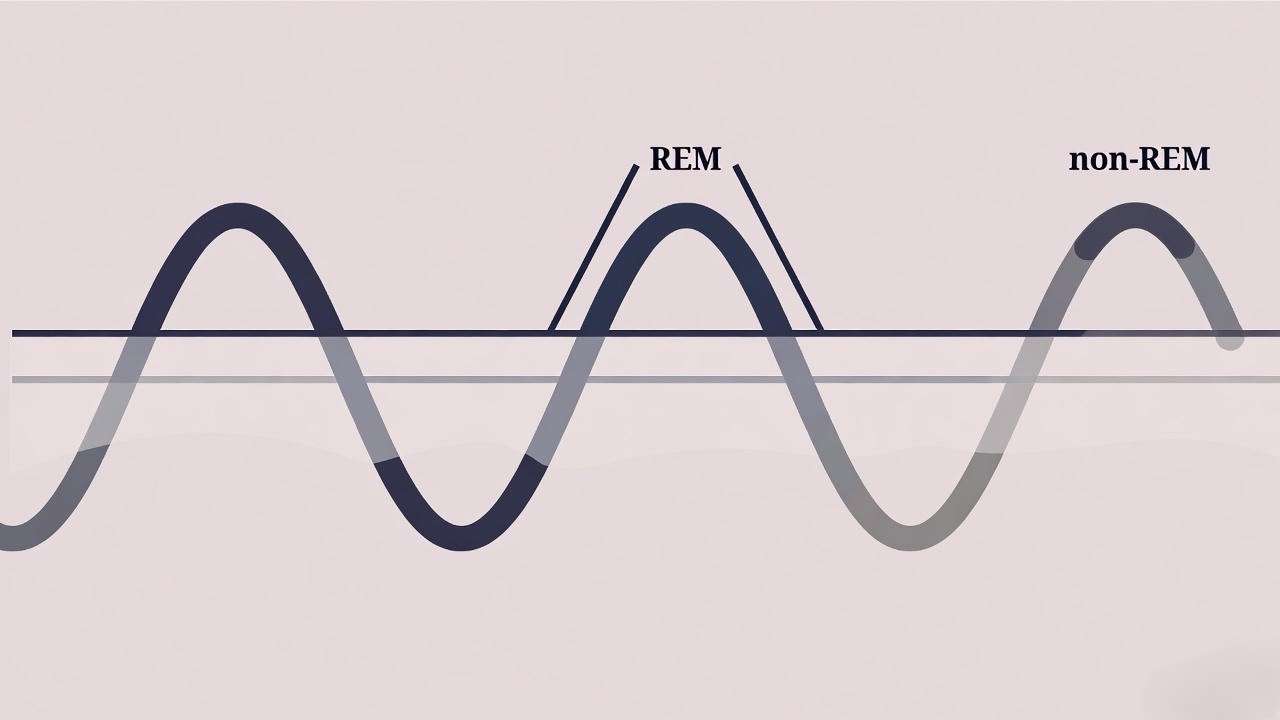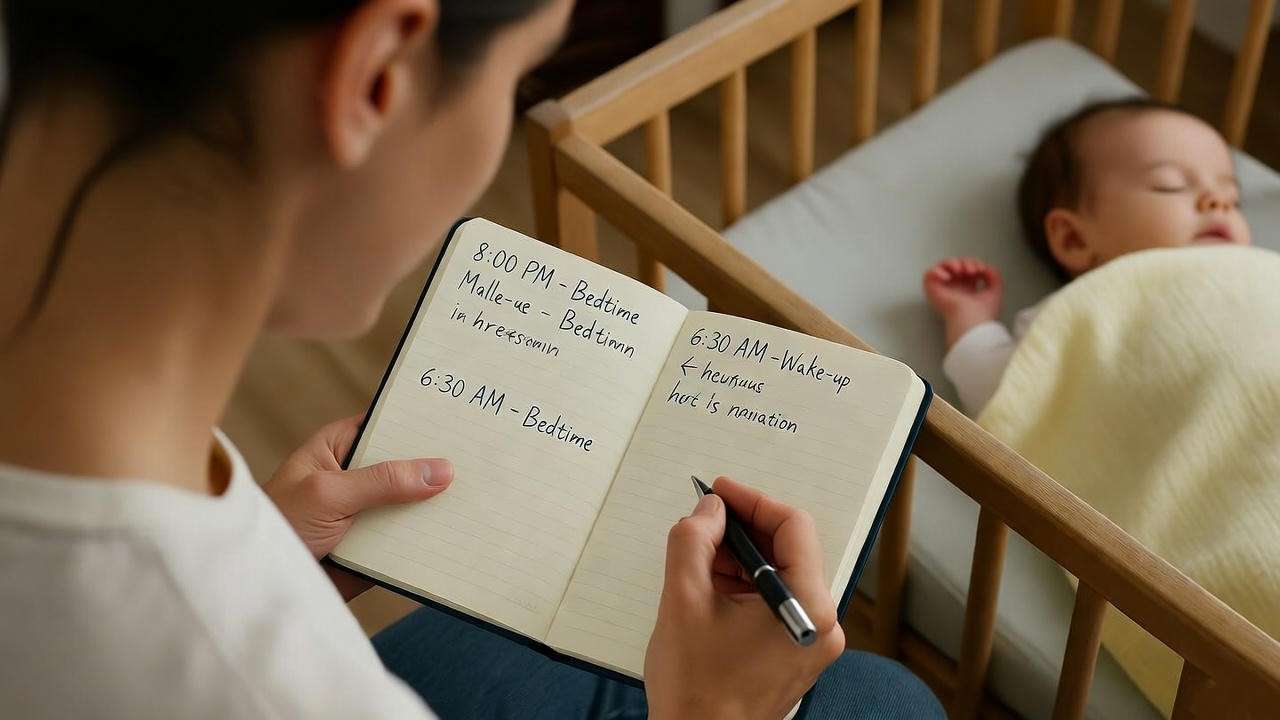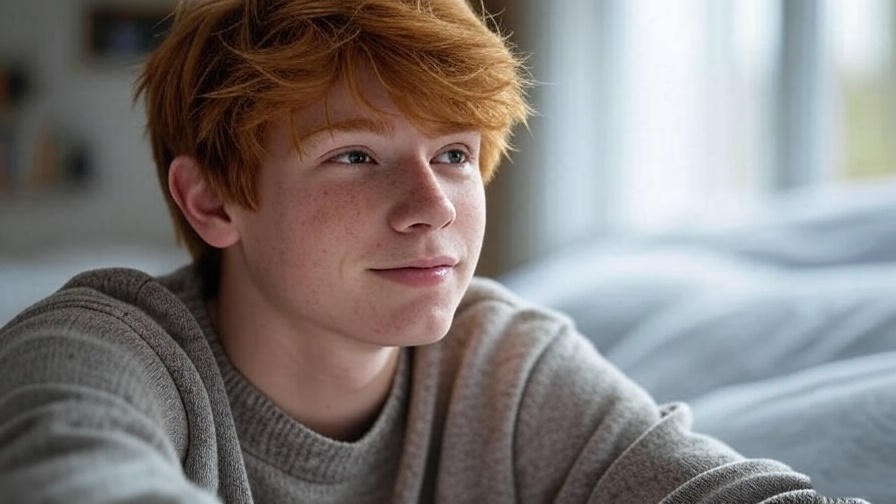It’s 2 a.m., and you’re watching your newborn twitch and whimper in their crib, their tiny face scrunching up as if troubled by something unseen. As a new parent, your heart races: Can newborns have bad dreams? This question, born from love and concern, is one many parents ask as they navigate the mysteries of their baby’s sleep. Understanding infant sleep patterns can feel overwhelming, but it’s a vital step toward ensuring your baby’s well-being and your peace of mind. In this comprehensive guide, we’ll explore whether newborns can experience bad dreams, what causes sleep disturbances, and how to foster healthy sleep habits. Backed by science and expert insights, this article offers practical advice to help you support your baby’s restful slumber.
Understanding Newborn Sleep: The Basics

How Newborn Sleep Differs from Adult Sleep
Newborns sleep differently than adults, and understanding these differences is key to addressing concerns about their rest. Unlike adults, who spend about 20% of sleep in REM (Rapid Eye Movement) phase, newborns dedicate roughly 50% of their sleep to REM, according to the American Academy of Pediatrics (AAP). This stage, often associated with dreaming in adults, supports critical brain development in infants. Newborns also cycle through sleep stages every 30–50 minutes, compared to 90 minutes for adults, leading to frequent transitions that may appear as restlessness.
These shorter cycles mean newborns wake more often, which can worry parents observing behaviors like twitching or crying. However, these are typically normal parts of their sleep architecture, not signs of distress. By understanding these patterns, parents can better interpret their baby’s sleep behaviors.
Why Sleep Matters for Newborns
Sleep is a cornerstone of newborn development. It supports physical growth, cognitive processing, and emotional regulation. Research from the National Sleep Foundation highlights that newborns need 14–17 hours of sleep daily to facilitate neural connections essential for learning and memory. During sleep, the brain processes sensory experiences, helping babies adapt to their new world. Disrupted sleep, whether from discomfort or overstimulation, can affect these processes, making it crucial to prioritize healthy sleep habits early on.
Expert Insight: Dr. Sarah Mitchell, a pediatric sleep specialist, notes, “Sleep is the foundation of a newborn’s growth. It’s when their brain organizes the day’s sensory input, laying the groundwork for future learning.”
Can Newborns Have Bad Dreams? The Science Explained
Do Newborns Dream at All?
The question of whether newborns can have bad dreams hinges on whether they dream at all. REM sleep, where most dreaming occurs in adults, is abundant in newborns, but the content of these “dreams” is likely different. A 2019 study in the Journal of Sleep Research suggests that newborn REM sleep involves processing basic sensory stimuli—like sounds or touch—rather than narrative dreams. Their brains lack the cognitive maturity to form complex mental images or emotions associated with dreams, as these develop later in childhood.
This means that while newborns experience REM sleep, it’s unlikely they have dreams in the way adults do. Instead, their brain activity during REM may reflect the integration of sensory experiences, helping them build neural pathways.
What Causes Twitching or Crying During Sleep?
Parents often mistake normal sleep behaviors for signs of bad dreams. Twitching, grimacing, or brief cries are common during newborn sleep and typically stem from physiological causes. The Moro reflex, a startle response triggered by sudden movements or noises, can cause jerking motions. An immature nervous system may also lead to spontaneous muscle movements. Additionally, digestive discomfort, such as gas or reflux, can cause fussiness that mimics distress.
Pediatrician’s Perspective: Dr. Emily Carter, a board-certified pediatrician, explains, “What looks like a bad dream is often just a reflex or a sign of physical discomfort. Newborns’ bodies are still adjusting to life outside the womb, and these movements are usually normal.”
Can Emotional Experiences Influence Newborn Sleep?
Newborns lack the cognitive capacity for complex emotions like fear or anxiety, which are necessary for nightmares. However, they are sensitive to physical and environmental stimuli. For example, overstimulation from a busy day can lead to restless sleep, as their brains process excess sensory input. A 2021 study in Pediatric Neurology found that newborns exposed to high stress environments (e.g., loud noises or frequent disruptions) may show signs of sleep fragmentation, though this isn’t equivalent to bad dreams.
By managing environmental factors, parents can help minimize sleep disturbances and promote calmer rest for their baby.
Common Causes of Disturbed Sleep in Newborns
Physical Discomfort
Newborns are prone to physical discomforts that can disrupt sleep, often mistaken for bad dreams. Common culprits include:
- Hunger: A newborn’s small stomach requires frequent feedings, and hunger can cause fussiness during sleep.
- Diaper Rash or Wetness: Skin irritation or a wet diaper can lead to discomfort.
- Gas or Reflux: Digestive issues are common in the first months and may cause crying or restlessness.
- Teething: Though rare in newborns, early teething can begin as early as 6 months, contributing to sleep issues.
Parents can address these by ensuring regular feedings, checking diapers frequently, and using gentle burping techniques to alleviate gas. If discomfort persists, consulting a pediatrician is advisable.
Overstimulation
Newborns have limited ability to filter sensory input, making them susceptible to overstimulation. Bright lights, loud noises, or excessive handling can overwhelm their nervous system, leading to fitful sleep. For example, a busy day with visitors or a noisy environment can cause a baby to wake more frequently. To prevent this, create a calm pre-sleep routine, such as dimming lights and minimizing stimulation an hour before bedtime.
Practical Tip: Use a white noise machine to mimic the soothing sounds of the womb, helping to block out disruptive noises.
Medical Conditions
Certain medical conditions can disrupt newborn sleep, including:
- Gastroesophageal Reflux (GER): Acid reflux can cause discomfort, leading to crying or waking.
- Colic: Prolonged crying episodes, often in the evening, can interfere with sleep.
- Infections or Illness: Even mild illnesses, like a cold, can affect sleep quality.
If a newborn shows persistent sleep disturbances, such as excessive crying or irregular breathing, parents should consult a pediatrician. A professional can assess whether an underlying condition is at play.
Tip Box: When to See a Doctor
- Excessive crying lasting over 3 hours daily
- Irregular breathing or pauses in breathing (apnea)
- Persistent waking despite addressing basic needs
- Signs of illness, such as fever or poor feeding
How to Support Healthy Sleep for Your Newborn
Creating a Soothing Sleep Environment

A sleep-friendly environment is essential for promoting restful sleep. Follow these AAP-recommended guidelines:
- Safe Bedding: Use a firm mattress with a fitted sheet in a crib or bassinet, free of pillows or blankets.
- Dim Lighting: Keep the room dark or use soft, warm lighting to signal bedtime.
- Comfortable Temperature: Maintain a room temperature of 68–72°F (20–22°C) to prevent overheating.
- White Noise: A consistent, low-level sound can soothe newborns and mask household noises.
Checklist:
- Crib meets safety standards
- Room is dark and quiet
- Temperature is comfortable
- White noise machine or fan is in use
Establishing a Consistent Routine
While newborns don’t follow strict schedules, a predictable bedtime routine can signal sleep time. A simple routine might include:
- Feeding to ensure the baby is full
- Gentle rocking or swaddling to promote relaxation
- A lullaby or soft music to create a calming atmosphere
Even a loose routine helps babies associate these actions with sleep. For example, a parent might feed, swaddle, and sing a lullaby in the same order each night. Over time, this consistency helps regulate sleep patterns.
Holistic Practices for Better Sleep
Holistic approaches can enhance newborn sleep while supporting parental well-being. Infant massage, for instance, has been shown to reduce stress and improve sleep quality, according to a 2020 study in Infant Behavior and Development. Gently massaging a baby’s legs, arms, and back with a safe oil (like coconut oil) can promote relaxation. Swaddling, when done safely, mimics the womb’s snugness, helping newborns feel secure.
Holistic Tip: Practice slow, deep breathing while holding your baby to create a shared sense of calm, aligning with mindfulness principles.
Expert Tip: Dr. Lisa Holloway, a holistic pediatrician, advises, “Parents can use gentle touch and rhythmic rocking to mirror the womb environment, helping newborns transition to sleep more easily.”
Parental Anxiety and Newborn Sleep: Addressing Common Worries
Why Parents Worry About Bad Dreams
As a new parent, seeing your newborn twitch, grimace, or cry during sleep can spark worry. These behaviors often prompt questions like, Is my baby having bad dreams? This concern stems from a natural instinct to protect and comfort your child. However, understanding that these behaviors are typically normal can ease anxiety. Research from the Journal of Pediatric Psychology (2022) shows that parental worry about infant sleep is common, especially in the first few months when sleep patterns are unpredictable. By learning what’s normal, parents can focus on supporting their baby’s rest rather than fearing the worst.
How to Monitor and Respond to Sleep Behaviors

Observing your newborn’s sleep patterns can help distinguish normal behaviors from potential issues. Keep a simple sleep diary to note:
- How often your baby wakes
- Duration of sleep sessions
- Any recurring behaviors (e.g., twitching, crying)
- Environmental factors (e.g., room temperature, noise levels)
This information can help you identify patterns and discuss concerns with a pediatrician if needed. For example, occasional twitching is normal, but persistent distress or irregular breathing warrants professional attention. Avoid overreacting to every movement—most are part of healthy sleep development.
Practical Tip: Use a notebook or a sleep-tracking app to log observations, which can provide clarity and reduce worry over time.
Coping with Parental Stress
Caring for a newborn is emotionally and physically demanding, and concerns about sleep can amplify stress. Mindfulness techniques can help parents manage anxiety, creating a calmer environment for both themselves and their baby. Try this simple meditation exercise during nighttime feedings:
- Sit comfortably while holding or feeding your baby.
- Take slow, deep breaths, inhaling for 4 seconds and exhaling for 6.
- Focus on the sensation of your baby’s weight or breathing, letting worries slip away.
- Repeat for 2–3 minutes to center yourself.
This practice, rooted in mindfulness-based stress reduction, can lower stress hormones, as noted in a 2021 study in Frontiers in Psychology. A calmer parent often leads to a calmer baby, fostering better sleep for both.
Myths vs. Facts About Newborn Sleep and Dreams
Myth: Newborns Have Nightmares Like Adults
Many parents assume that a newborn’s cries or movements during sleep indicate nightmares, similar to those in adults. However, scientific evidence debunks this. Newborns lack the cognitive and emotional development needed for complex nightmares. Their REM sleep, while frequent, is more about processing sensory input than forming fear-based dreams, according to a 2020 study in Sleep Medicine Reviews. Understanding this can reassure parents that their baby’s sleep behaviors are developmental, not distressing.
Myth: Crying in Sleep Always Indicates Distress
Crying during sleep is often mistaken for a sign of distress or bad dreams. In reality, newborns frequently cry or whimper as they transition between sleep cycles, a normal part of their sleep architecture. The AAP notes that these vocalizations are often brief and don’t require intervention unless they persist or are accompanied by other concerning symptoms. Recognizing this can help parents avoid unnecessary worry.
Fact: Sleep Supports Brain Development
Sleep is critical for newborn brain development. During REM sleep, the brain forms neural connections that support learning, memory, and sensory processing. A 2023 study in Developmental Neuroscience found that adequate sleep in the first year enhances cognitive outcomes later in childhood. Ensuring your baby gets enough rest supports their long-term development, making healthy sleep habits a priority.
| Myth | Fact |
|---|---|
| Newborns have nightmares like adults | Newborns lack the cognitive capacity for complex dreams or nightmares |
| Crying in sleep always means distress | Brief crying is normal during sleep cycle transitions |
| Sleep disruptions harm development | Normal sleep variations support growth; persistent issues need evaluation |
When to Seek Professional Help

Red Flags in Newborn Sleep Patterns
While most sleep behaviors are normal, certain signs may indicate a need for medical attention. Watch for:
- Excessive Crying: Crying for more than 3 hours daily, especially if inconsolable.
- Irregular Breathing: Pauses in breathing (apnea) or gasping during sleep.
- Persistent Waking: Frequent waking despite addressing hunger, diaper changes, or discomfort.
- Signs of Illness: Poor feeding, fever, or lethargy alongside sleep issues.
If you notice these, contact a pediatrician promptly. Early intervention can address underlying issues like reflux or sleep apnea, ensuring your baby’s health.
Working with a Pediatric Sleep Consultant
For ongoing sleep challenges, a pediatric sleep consultant can offer tailored guidance. These professionals assess your baby’s sleep patterns, environment, and routine to create a personalized plan. When choosing a consultant, look for:
- Credentials from reputable organizations (e.g., International Association of Child Sleep Consultants)
- Experience with newborns and evidence-based methods
- Positive reviews or referrals from other parents
A consultant can help establish healthy sleep habits, reducing stress for both you and your baby.
Resource List:
- American Academy of Pediatrics: www.aap.org
- National Sleep Foundation: www.sleepfoundation.org
- Journal of Sleep Research: Access via academic libraries for peer-reviewed studies
FAQs About Newborn Sleep and Dreams
Can newborns have bad dreams like adults?
No, newborns lack the cognitive and emotional maturity for complex dreams or nightmares. Their REM sleep likely processes sensory stimuli, not narrative dreams, as supported by research in Sleep Medicine Reviews (2020).
Why does my newborn cry or twitch during sleep?
Twitching and crying are often due to normal reflexes (like the Moro reflex), sleep cycle transitions, or physical discomfort (e.g., gas, hunger). Ensure basic needs are met and consult a pediatrician if concerns persist.
How can I tell if my baby’s sleep issues are serious?
Look for red flags like excessive crying (over 3 hours daily), irregular breathing, or signs of illness. Persistent issues warrant a pediatrician’s evaluation to rule out conditions like reflux or apnea.
What can I do to help my newborn sleep better?
Create a soothing sleep environment (dim lights, white noise), establish a consistent routine (feeding, swaddling, lullaby), and use holistic practices like infant massage to promote relaxation.
Conclusion
Newborn sleep can feel like a puzzle, especially when parents wonder, Can newborns have bad dreams? The science is clear: newborns don’t experience bad dreams as adults do, but their frequent REM sleep and normal behaviors like twitching or crying can raise concerns. By understanding infant sleep patterns, addressing physical discomfort, and creating a nurturing sleep environment, parents can support their baby’s rest and development. If worries persist, consulting a pediatrician or sleep consultant offers peace of mind. Prioritizing healthy sleep not only benefits your newborn but also fosters holistic family well-being. Have questions or experiences to share? Leave a comment below—we’d love to hear from you!













